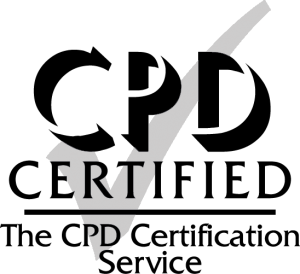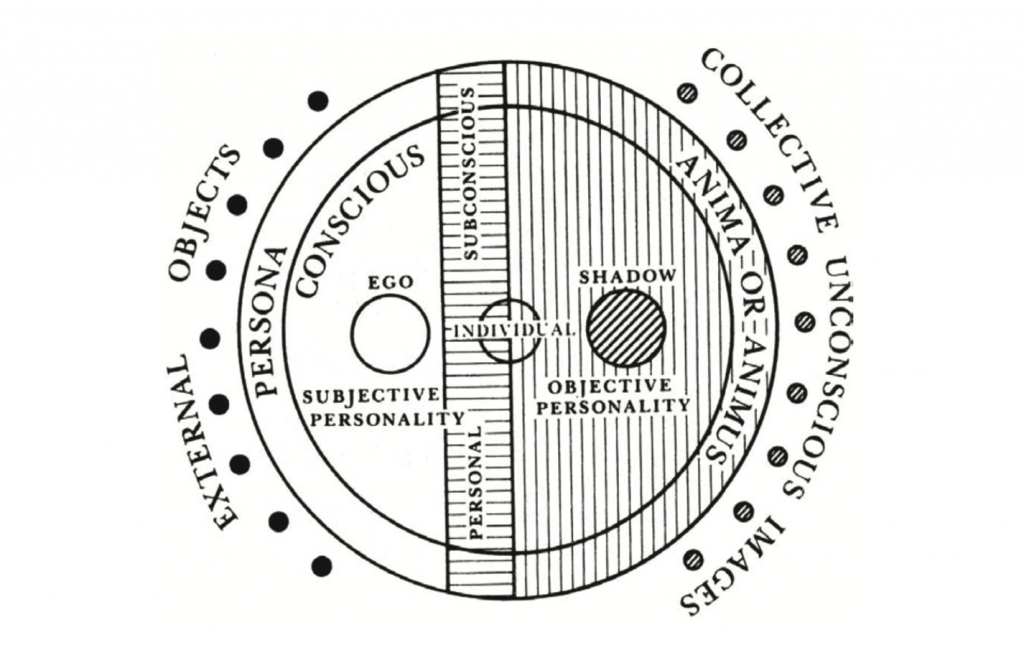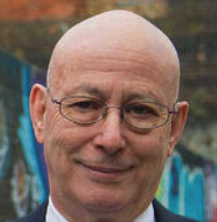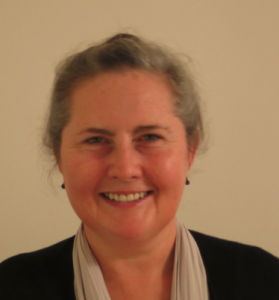SUMMER SCHOOL
JUNGIAN & POST-JUNGIAN
CLINICAL CONCEPTS
Presents
The Therapy Relationship
Online certificate course on key concepts of Jungian theory and clinical application.
This course is aimed at psychotherapists, psychologists, counsellors, social workers, coaches, and those working in the mental health and wellness field, wishing to understand the fundamentals of Jungian and post-Jungian psychology in clinical practice. This is a unique focused and in-depth learning opportunity in Jungian and post-Jungian theory and clinical application, with a global faculty of senior Jungian clinicians and academics.

THE THERAPY RELATIONSHIP
The Therapy Relationship
6 July 2024 – Andrew Samuels
The Infant relationship to Objects
20 July 2024 — Sue Austin*
Interpretation in Jungian Analysis – Art and Technique
27 July 2024 – Mark Winborn
Ego, Shadow and the Four Stages of Transformation
10 August 2024 – Stephen Farah
Student Round Table – Closing Forum
24 August 2024
________________________________
*Due to the presenter’s time-zone, a recorded lecture from Sue Austin becomes available on 20 July 2024. Students may submit questions in response to it by 3 August 2024. A video reply to those questions will be posted by 17 August 2024.
PLEASE NOTE
This online course is aimed students from all over the world, those working with human relations, welfare, emotional growth and development and spiritual directions. Specifically at those in the psychotherapeutic field: clinicians, psychotherapists, social workers, counsellors and psychologists, wishing to either be introduced to or deepen their existing knowledge of Jungian psychology.
NB. The course is not a formal training or accreditation as a Jungian analyst. It is offered as continuing professional development for practising psychotherapists. In terms of the number of CEUs offered for the course, you will need to check with your local accreditation body.
For the full syllabus, module descriptions and faculty information see below.
COURSE OVERVIEW
Course Starts 6 July 2024
The modules include:
* Access to ‘Jung Unplugged’ – a comprehensive lexicon of Jungian Concepts.
* A 2-hour webinar with the course presenter, a formal lecture and an extended Q&A. These webinars are presented live and recorded for those unable to attend.
* Essential reading, set by the module presenter and made available as part of the programme reading pack.
* A self-reflective application for each module.
* Access to a student site to download the learning material,
and complete your questionnaires.
*Closing Forum After Final Module, to share questions and discuss concepts explored with peers in the international student body.
Course process per module:
* Access and download your reading pack.
* Live lecture that is recorded for students who cannot attend.
* Work through Applications provided to deepen you personal experience and understanding of the module content.
* Complete a 15 question multiple choice questionnaire – Only required should you wish to receive CPD- Continuing Professional Development Points/ CEU – Continuing Education Units.
The course fee includes:
* Four Online Lectures with Q&As
* Course materials
*Closing Forum for Peer Discussion
Time requirement:
You will need a total of six to eight hours per month. All studying can be done in your own time, with the exception of the live lectures, which happen at set times – on four Saturdays over two months. The webinars are also recorded, should you be unable to make a live broadcast. There is also one optional Closing Student Forum.
Accreditation:

This course is certified with 28 CPD’s.
The psychotherapist is not just working for this particular patient, but for himself as well and his own soul, and in so doing he is perhaps laying an infinitesimal grain in the scales of humanity’s soul. Small and invisible as this contribution may be, it is yet an opus magnum.
(Carl Gustav Jung)
ETHOS
The Centre for Applied Jungian Studies exists to promote the research, learning and dissemination of depth psychology and studies, with a focus on Jungian psychology, in a non-linear, non-traditional, fashion. Utilising disruptive technologies the Centre delivers the concepts and applications, developed within the framework of depth psychology, to a wider audience than has historically been given access to these ideas and tools. This approach reflects the global paradigm shift to learning being made more widely and democratically accessible. This is facilitated in part by the non-localisation opportunities for learning created by the WWW, and the radical evolution and sophistication of communication platforms over the last two decades. This aspiration maintains the highest regard for the value and integrity of depth psychological theory and practice. It acknowledges the debt owed to the pioneers of depth psychology and their legacy, as well as the tireless work of the clinicians and scholars who have furthered the field of study over the last century.
The Centre for Applied Jungian Studies is committed to excellence in research, teaching and practice.
‘Jungian and post-Jungian Clinical Concepts’ was inspired by the challenge presented by the Jungian scholars and clinicians at the ‘Spectre of the Other in Jungian Psychology,’ an International Association of Jungian Studies conference that took place in Cape Town in 2017. Where, the urgent need to reach those previously excluded from the teaching and ideas of Jungian psychology, be it for reasons of location, economics or historical prejudices, was unequivocally sounded. In its own modest way, this course sets out to achieve that. By virtue of offering top-class tuition in Jungian psychotherapy, outside of its traditional setting, being non-localised (online), and a tiered fee structure, the aim is explicitly to democratise the learning opportunities offered by Jungian psychology, broaden the reach of these tools and to be as inclusive as possible.

REGISTRATION
Registration will close midnight (PST) 5 July 2024.
Fees: U$250 single payment.
U$95 per month for three months
* Please note accreditation only applicable to students who complete all four modules in “The Therapy Relationship”.
Register for the 12 month Jungian and Post-Jungian Clinical Concepts Certification Course
PROGRAM FACULTY
Stephen Farah (HOD)
 Stephen Anthony Farah, MA is the co-founder and Head of Learning and Research at The Centre for Applied Jungian Studies South Africa. He is the current co-Chair of the International Association of Jungian Studies. Stephen holds an honours degree in analytical philosophy from the University of the Witwatersrand and a master’s degree in Jungian and Post Jungian Studies from the University of Essex. Stephen’s areas of interest include psychoanalysis, film, psychoeducation, consciousness, individuation, and Future Studies. His published papers include ‘True Detective and Jung’s Four Steps of Transformation’ published in ‘The Routledge International Handbook of Jungian Film Studies’ (2018) and ‘The Freak: in Search of Jung’s second Personality’, in the anthology ‘The Spectre of the Other in Jungian Psychoanalysis: Political, Psychological and Sociological Perspectives’, (Routledge 2022) which he also co-edited.
Stephen Anthony Farah, MA is the co-founder and Head of Learning and Research at The Centre for Applied Jungian Studies South Africa. He is the current co-Chair of the International Association of Jungian Studies. Stephen holds an honours degree in analytical philosophy from the University of the Witwatersrand and a master’s degree in Jungian and Post Jungian Studies from the University of Essex. Stephen’s areas of interest include psychoanalysis, film, psychoeducation, consciousness, individuation, and Future Studies. His published papers include ‘True Detective and Jung’s Four Steps of Transformation’ published in ‘The Routledge International Handbook of Jungian Film Studies’ (2018) and ‘The Freak: in Search of Jung’s second Personality’, in the anthology ‘The Spectre of the Other in Jungian Psychoanalysis: Political, Psychological and Sociological Perspectives’, (Routledge 2022) which he also co-edited.
Prof Andrew Samuels (Programme Consultant)
 Andrew Samuels is Professor of Analytical Psychology at the University of Essex and a Jungian analyst in practice in London. He has been referred to as ‘the most celebrated of today’s Jungian analysts’ (in American Imago). He is a former Chair of the UK Council for Psychotherapy. His many books have been translated into 21 languages and include the ground-breaking Jung and the Post-Jungians (1985), A Critical Dictionary of Jungian Analysis (1986), The Father: Contemporary Jungian Perspectives (1986), Psychopathology: Contemporary Jungian Perspectives (1989), and Persons, Passions, Politics, Psychotherapy: Selected Works of Andrew Samuels (2015). For more information visit https://www.andrewsamuels.com/.
Andrew Samuels is Professor of Analytical Psychology at the University of Essex and a Jungian analyst in practice in London. He has been referred to as ‘the most celebrated of today’s Jungian analysts’ (in American Imago). He is a former Chair of the UK Council for Psychotherapy. His many books have been translated into 21 languages and include the ground-breaking Jung and the Post-Jungians (1985), A Critical Dictionary of Jungian Analysis (1986), The Father: Contemporary Jungian Perspectives (1986), Psychopathology: Contemporary Jungian Perspectives (1989), and Persons, Passions, Politics, Psychotherapy: Selected Works of Andrew Samuels (2015). For more information visit https://www.andrewsamuels.com/.
Dr Sue Austin
 Sue Austin, Ph.D. and member ANZSJA, works in private practice in Sydney and is a training analyst with the Australian and New Zealand Society of Jungian Analysts. She specializes in working with adults who have eating disorders and/or disorders of the self (i.e., people whose experience of subjectivity is abject) and her practice comprises general analytic work with adults and supervision of clinicians in Australia and internationally. Sue has run numerous clinical workshops and seminars in Australia, New Zealand, the UK, Europe and the USA, and has published several clinical papers and a book. http://www.sueaustin.net.au/
Sue Austin, Ph.D. and member ANZSJA, works in private practice in Sydney and is a training analyst with the Australian and New Zealand Society of Jungian Analysts. She specializes in working with adults who have eating disorders and/or disorders of the self (i.e., people whose experience of subjectivity is abject) and her practice comprises general analytic work with adults and supervision of clinicians in Australia and internationally. Sue has run numerous clinical workshops and seminars in Australia, New Zealand, the UK, Europe and the USA, and has published several clinical papers and a book. http://www.sueaustin.net.au/
Dr Mark Winborn
 Mark Winborn, PhD is a Jungian psychoanalyst and clinical psychologist. He is a training analyst with the Inter-Regional Society of Jungian Analysts and the C.G. Jung Institute Küsnacht. His primary areas of interest are analytic technique and the integration of psychoanalytic theories. He has published or edited five books: Deep Blues: Human Soundscapes for the Archetypal Journey, Shared Realities: Participation Mystique and Beyond, Interpretation in Jungian Analysis: Art and Technique, Beyond Persona: On Individuation and Beginnings with Jungian Analysts (with Lavinia Țânculescu), and Jungian Psychoanalysis: A Contemporary Introduction (part of the Routledge series – Introductions to Contemporary Psychoanalysis), as well as numerous articles and book chapters. He received the Gradiva prize from the National Association for the Advancement of Psychoanalysis for the best article published in 2022 and was a finalist in 2014 for the best edited book in psychoanalysis. He lectures widely both in the USA and internationally.
Mark Winborn, PhD is a Jungian psychoanalyst and clinical psychologist. He is a training analyst with the Inter-Regional Society of Jungian Analysts and the C.G. Jung Institute Küsnacht. His primary areas of interest are analytic technique and the integration of psychoanalytic theories. He has published or edited five books: Deep Blues: Human Soundscapes for the Archetypal Journey, Shared Realities: Participation Mystique and Beyond, Interpretation in Jungian Analysis: Art and Technique, Beyond Persona: On Individuation and Beginnings with Jungian Analysts (with Lavinia Țânculescu), and Jungian Psychoanalysis: A Contemporary Introduction (part of the Routledge series – Introductions to Contemporary Psychoanalysis), as well as numerous articles and book chapters. He received the Gradiva prize from the National Association for the Advancement of Psychoanalysis for the best article published in 2022 and was a finalist in 2014 for the best edited book in psychoanalysis. He lectures widely both in the USA and internationally.
TESTIMONIALS
It’s time for module 11 of my Jungian and Post Jungian clinical concepts course. This one is about dreams and active imagination. The course started in May of last year and has been both fascinating and brilliant. The course ends in May with the final module on the Political Pdyche by Professor Andrew Samuel’s. What a year its been . I couldn’t recommend the Centre for Applied Jungian Studies more highly.
Martyn Shrewsbury
Thank you for such a wonderful opportunity to hear all the lecturers! You picked up the best! I am the president of Russian Society for Analytical Psychology and attended this course with an idea to compare the level of education we give in Russia with the international. I’m really satisfied with what I got with your course. Thank you again for this wonderful experience! And good luck to you and the centre!
Natalia Pavlikova (Russia)
Really enjoyed the course. The course content and webinars were demanding but appeared to be of the highest quality. Feel I am bit wiser now.
Tony Reilly (UK)
It has been a wonderful experience. Thank you all for each month of knowledge and incredible insights .
Susana Munaux (Mexico)
I would like to thank you for setting up and running this online course. It has been a wonderful learning opportunity and really enjoyed delving deep into Jungian psychology. it was great to learn from the best authors and practitioners worldwide. It definitely added much value to my practice as coach and career counsellor.
Anne Robert (Mauritius)
A warm and grateful “THANK YOU” for your work, to all Professor and teacher. I had much pleasure deepening my understanding of Jungian thoughts.
Denis Casarsa (Koh Samui)
I have really enjoyed the course and valued the quality of the seminar presentations. I have had an opportunity to extend and deepen my understanding. Thank you to all involved .
Sally Dhruev (UK)
This course was a deeply enriching experience for me.
Valeria Almada (Mexico)
This course was truly rich and I benefited greatly from it. It had really good material and lecturers, and I loved how they covered so many different aspects of such work.
Carli Castellani (US)
I don’t think I would of had access to this wealth of information by experts from around the world if it had not been for this opportunity. I have been interested in Jungian analysis and would like to peruse it but it’s really challenging finding the right route. I feel inspired and have all this knowledge from the course.
Thanks again not only for the contents but making it affordable and available online!
Stacey Coconas (South Africa)
Thank you very much and Congrats to CAJS for the wonderful course.
Juliana Navarro (Rio de Janeiro)
Thank you so much Anja- it’s been a brilliant course- very enjoyable, stimulating and informative.
Linda-Mary Edwards (UK)
Thanks again for putting together such an interesting course that really informs about key concepts of Jungian thought from a contemporary perspective.
Catriona MacInnes


